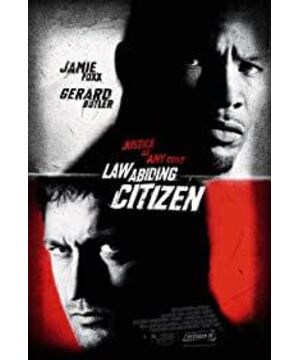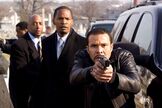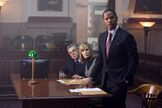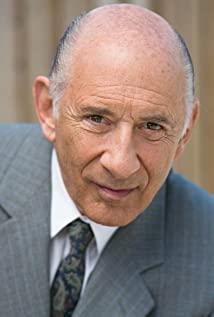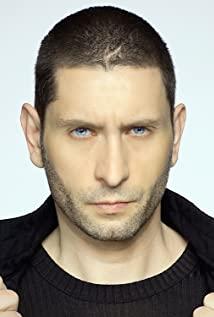This is a blog post by Wu Zhihong, the original text is here, I hope to popularize the knowledge of psychology.
http://blog.sina.com.cn/s/blog_547645590100jzwt.html When
I was young, I really wanted to change the system, I wanted to fight and do my best at any cost, but here is a step, a step there, and finally Get caught up in this game. Then I realized that the system I wanted to change changed me.
- Prosecutors movie "law-abiding citizens" in the Nick
Nick • Rice, a Philadelphia prosecutor, he is proud of his work, because his conviction rate of 96%.
That is to say, 96% of the suspects he prosecuted were convicted and punished.
This is an amazing number. However, one of his "protection objects", Clyde Shelton, decided to take revenge on Nick.
No, not to retaliate against Nick, but to destroy the "decay temple" of Philadelphia's judicial system for Nick to see.
This is the story told in the Hollywood psychological thriller "Law Abiding Citizen".
The screenwriter of "Law Abiding Citizen" includes the director of the classic business card "The Shawshank Redemption", the actor Jamie Foxx of Nick is a versatile Oscar winner, and the actor of Clyde is also the actor of "300 Warriors". The lineup can be described as powerful.
However, what appealed to me most about this film was the moral of the interlocking story.
Surrender to fate, then pass on fate
Clyde's fate is tragic. Originally, he had a happy family, but the gangsters Darby and Ami attacked his home, he was stabbed and bound, and his beloved wife and daughter were raped and killed by Darby in front of him.
Darby deliberately did not kill Clyde, and said to him when subduing Clyde:
You can't rebel against fate.
Darby doesn't want Clyde's belongings, he wants to create a feeling for Clyde - "You can't resist fate."
This is a typical projection, Darby has a feeling deep inside himself that "I can't resist fate", he can't stand this feeling, so he looks for an opportunity to project this feeling out. He cannot rebel against his fate, but he can pass his fate on to others.
Nick is smart, persistent and serious. He knows who Darby is, and he also knows that Darby is the principal and Ami is the accomplice. He did, however, reach a plea deal with Darby. It's a deal, Darby's deal is to accuse Ami, and Nick's deal is to get Darby's murder offense.
Why do this deal?
Nick told his teacher, Philadelphia Attorney General Jonas, that he couldn't take a chance because the case was so lacking, the DNA test failed, and Clyde was insane at the time, it was not credible that a plea deal would not be made. Prosecution continues, and the likely outcome is that both Darby and Ami are acquitted.
Nick makes a lot of sense, but, Jonas said, how do you account for the victim's husband?
This is not difficult for Nick. When he was talking to Clyde, he calmly told Clyde: "I made a deal with them... This is a win for us!"
Clyde said, you Know what the facts are. Nick retorted: "You know it's not important, what matters is what you can prove in court."
This is the core of a legal society. However, Nick said so decisively, at that moment, there was no warmth in his heart at all. and soft.
Clyde couldn't make his heart soft, but Darby could find it. In the last crucial trial, Darby knew that the situation was settled, he only needed to stay in prison for 3 years, he was very happy, first asked Nick: "Are you married?"
Then he also said to Nick: "You can't fight against fate "
Darby is jealous, why am I so helpless in my heart, but you can live so well, why can't I have a normal relationship with a woman, but you can get married and live a happy life? You are on my side, but I want you to die, I want everyone around me to die, I want you all to be as helpless as I am, to accept the same logic as I - "You can't fight against fate! "
Nick hated Darby to the extreme. In fact, even if Darby didn't say these two words, he wouldn't have the slightest liking for Darby. However, what is this ending? His emotions are on Clyde's side, but the legal system in his mind is on the other side.
The emotion in the heart and the legal system in the head are split. One of the reasons for this split is that he is unwilling to move his emotions.
On his way out of court to meet the media, Jonas reassured Nick, "Once you make a decision, you have to accept it and forget about it."
Jonas later told Nick that the hard part was not making a decision, The hard part is accepting.
This is a kind of self-deception, because the difficult thing is how to make a decision, especially how to face the most tragic things in the world that I often see in this work with emotion.
Jonas is saying that you have to convince yourself to force your decision, regardless of the emotion. To do this, you must rationalize your decisions.
Another key is that it feels special to be in charge of someone else's destiny. Neither Jonas nor Nick liked Darby's ending, but they both liked that it was up to them to decide. So Jonas told Nick the story of the philosophical Roman emperor Marcus Aurelius:
Every time he went to a square, Aurelius would take a special servant with him, and whenever he heard someone praise the emperor , the servant whispered to Aurelius: "You're just a man, you're just a man." In a
nutshell, the first key is to shut down emotions, and the second key is to enjoy power feel. Nick, who is emotionally closed, is forgivable, but Nick, who enjoys a sense of power, deeply stabs Clyde. In the plaza, when Nick talked to the media, especially when Nick shook hands with Darby, Clyde was sore that he decided to take revenge.
It's about emotion,
and it's about power, emotion and power, which is more important?
Consciously, Nick, Jonas, and every heavyweight in the Philadelphia judicial system must say that emotions are more important, power, they don't care, they don't pursue power, they care about pursuing justice, for example, Nick I like to ask my daughter: "What work does Dad work?" The
daughter will answer: "Catch the bad guy."
Nick asks again: "Why catch the bad guy?" The
daughter replies: "For our safety."
Another example is Darby and Ami's Defense attorney Reynolds, who came to the scene when Ami was executed 10 years later, Nick asked him why he didn't watch DVDs at home instead of coming to the scene, Reynolds responded: "Ami has no family, I think Should come and give him a ride."
It seems that Reynolds is very emotional. It's true to a certain extent, but at the same time, he's also sexually aroused in his old age, and he's concerned about the thighs of Nick's assistant, Sarah.
Freud has long discovered that sexual excitement and death are closely related, and death or watching others die may be aroused by sexual desire and even orgasm. But I always felt that Reynolds' sexual arousal meant something else, and there was something else to these members of the justice system sitting in rows in front of the death chamber watching Ami get executed.
But this meaning was destroyed. Ami, who could have died without pain, struggled in pain for a long time before dying.
Someone moved, and a bottle said: "You can't resist fate."
This sentence reminded Nick of Darby, and they immediately dispatched to arrest Darby.
But Nick, who thought he was very smart, was wrong. From now on, every decision he made, every step he took, was a trap for Clyde.
Clyde finally launched an action, and let Ami die in pain, just his first step.
Clyde's second move is to use the police convoy brought by Nick to lure and subdue Darby. Next, he returned to Darby the sense of helplessness that Darby gave him.
Darby had been poisoned by a blowfish, and as a result, he would be incapacitated, but his ability to feel was not destroyed in the slightest.
Then, Clyde tied Darby tightly to a bed, and above the bed was a mirror with pictures of Clyde's wife and daughter. He wants to dismember Darby, his beloved wife and daughter to watch him take revenge, and Darby to see himself dismembered.
He also injected Darby with epinephrine so Darby wouldn't pass out, and he cut Darby's speech piece so Darby couldn't close his eyes.
...It
seems that Clyde is no different from those perverted killers, but the difference is huge. Those perverted killers first have a belief "I can't rebel against fate", and then they create a sense of helplessness for others that "you can't rebel against fate". On the contrary, Clyde directly "rebelled against fate", and he wanted to return Darby the sense of helplessness that Darby had created for him.
An eye for an eye and a tooth for a tooth are not good enough, because it is time to repay grievances, but this method of revenge can limit the pain between the perpetrator and the victim, and will not be passed on.
Of course, this is not the logic of a legal society. The logic of a legal society is that all problems are resolved within the legal system, so whether it is harm or revenge, they will be punished by law.
Clyde wants to be a "law-abiding citizen", so he leaves clues for Nick to catch him easily.
This is when the real story begins. Clyde wants to play enough of the "pleasure agreement" trading game with Nick and the entire justice system. The plea agreement is a game of who has the final say
Nick caught Clyde, but he had no evidence, so he had to convince Clyde to plead guilty.
It was easy, because Clyde offered to offer a plea deal, his bargaining chip was to plead guilty, and his condition was to get him a Simmons bed in his cell.
Clyde's request was unimaginably low, but Nick declined with a bit of exasperation.
Nick's peers couldn't understand, they asked Nick, why not accept it?
I have a friend who is very peculiar when he consumes. Sometimes he will call the waiter or manager over and say, how can you set the price of this dish so unreasonable!
Without waiting for an excuse from the waiter or manager, he would go on to say that the price was too low, what it should be.
This game of his is the same as Clyde's game, it's a game of who has the final say. The price in consumption is set by the operator, and consumers only seem to accept it, especially in those big restaurants. My friend doesn't like this feeling, so he wants to be picky and he wants to raise the price. The other party will definitely agree to raise the price, so he will have the feeling that he has the final say. But he is very smart, and every time he picks a thorn, he picks the price of some side dishes.
When Nick played the game of a plea deal, he preferred the other party to overcharge, which proved that the other party was afraid, and that Nick had enough chips. But like Clyde, who pleaded guilty to the two felonies of killing Ami and Darby, but only wanted a Simmons bed, which was so light that he seemed to have no reason to refuse, so light that he seemed to have to accept it. It's unpleasant to feel forced to be teased.
From this point of view, the contest between the prosecutor and the criminal, like the quarrel between the husband and the wife, is actually a contest of wills, and the contest is over who has the final say.
But Nick is a good prosecutor. In any system, good performance means being problem-centric, not emotion-centric. So Nick reached a plea deal with Clyde anyway and installed a Simmons mattress in his cell.
It's over, Nick thought, but Clyde said I'm going to make a second deal with you.
Nick was stunned, he asked, there must be chips in the transaction, do you have any chips? Clyde asked, is Reynolds alive enough?
Reynolds was the defense lawyer who cared about women's thighs before Ami was executed, and his life was naturally enough of a bargaining chip. This time, Clyde's condition was a high-quality western meal, a set of 20-pound steak, and his Walkman, to be delivered by 1 noon.
This time, it was the warden's turn to be upset. He also felt being teased, and he wanted to resist. Since 1 o'clock is Clyde's will, he intentionally delayed the delivery of western food until 1:08.
Usually, as a judicial officer, it's nice to show one's will, but with Clyde, this approach has a price, this time, Reynolds died. Originally, Reynolds could live if they delivered the western food on time.
Who doesn't love a sense of power? In Clyde's case, the most powerful is not Nick, but a female judge. She sentenced Ami to death, and she sentenced Darby to three years in prison. Now, things are urgent and Clyde has terrible destructive power, so Nick and Jonas ask the female judge to limit Nick's scope of action.
What do you mean, the woman judge asked, for me to "violate his natural human rights for a vague and more important purpose?" After being confirmed, she said, "Okay, I'm in the game."
Finally, she She said proudly: "That's the benefit of being a judge, Mr. Rice, I basically do what I want."
This was the last sentence of her life. When she was about to answer the phone, the phone exploded and she died on the spot.
Without the heart, people will be alienated by the system
. It was only at this point that Nick felt fear, and he realized that what Clyde said was true. He was not simply revenge. The temple" was destroyed to show him.
At this point, Clyde offered a new deal, freeing him and dropping all charges by 6 a.m. the next morning, and his chips were future tense, otherwise "I'm going to kill everyone."
Nick doesn't Possibly accepting this bargaining chip, he decided that Clyde must have a helper, so he mobilized all the information and all personnel to the prison, he wanted to find Clyde's helper, because Clyde has been locked in a single cell, It cannot be that he killed the female judge.
10 years ago, Sarah was Nick's assistant, she is now 35 years old, her heart was shaken, she asked Nick, if it were now, would you still make a deal with Darby?
Nick said, of course, Sarah, you have to believe that we made the right decision.
But Sarah said, I hope there is something else, I hope my job is not just for high conviction rates.
A woman's heart is difficult to harden, not to mention that Sarah is still in love, she may be afraid of being alienated by the monster of the judicial system and become a power madman who has closed her emotions.
Soon, it was 6 a.m. and nothing happened, and Nick and his colleagues were relieved and decided to go home and rest for a while. But then, disaster struck. Cars in the parking lot exploded, killing six prosecutors on the spot, including Sarah.
The death of six colleagues, especially Sarah, deeply stabbed Nick. In fact, it is often pain that revives a rigid heart. An eminent Buddhist monk said: "The heart is broken again and again, just to open it."
After the heart was opened, Nick was no longer a standard prosecutor, he became a A man with an emotional hole, he beats Clyde in a fit of rage.
But Clyde said, "You've grown, Nick."
Clyde finally spoke about what made him act—"You can walk out of court with your head up, I can't stand it."
I think, Clyde What he said was that he couldn't stand Nick shutting down on his case, especially the way Nick was in power.
After the emotional opening, Nick finally began to reflect on whether he was really wrong. At the funeral of six of his colleagues, he told Jonas: "It was me
who was wrong." He said: "When I was young, I wanted to change the system, I wanted to fight, to do my best at any cost, But one step here, one step there, and finally I got caught up in the game. Then I realized that the system I wanted to change changed me.”
Jonas continued to use his old language to comfort him. : "It's not difficult to make a decision, what's difficult is to accept it."
Jonas's sentence sent himself to a dead end, just as the female judge's sentence sent himself to a dead end. Clyde was supposed to be listening in on their conversations and deciding what to do based on what he heard, which is why he told Nick that "everyone should be held accountable for their actions". He didn't feel like he was killing innocents indiscriminately.
A remote-controlled demolition robot attacked the car Jonas was in, and Jonas died on the spot.
For Nick to be at his best, the heart has to be open and the emotions cannot be closed, but that decision would be difficult and painful, and Jonas' logic was that a little more rationalized self-deception would do. However, if there is no heart and no emotion, a person will get lost in any system, and eventually be alienated by the system and become a screw in the system, and then he will no longer be called a person.
In the end, when Nick relayed Jonas's statement to Clyde, he corrected it and changed it to "We can't change a given decision, but it can affect the decision that is about to be made." This sentence is OK, any decision will have limitations, the facts are indeed as Nick said, if there is no plea agreement, Darby and Ami may be acquitted, but the key is, whether Nick really reflects, he Whether he can take a heart to see the limitations of this decision, for 10 years, he has not, on the contrary, he has really followed Jonas's advice and constantly rationalized his past decisions. As a result, his heart became more and more rigid, and he became more and more like a power maniac.
He is no longer a legal screw. A
power maniac is often a workaholic, and work, most of the time, is always in a system, and the core rule of any system is power.
Of course, a system will also be formed between husband and wife and parent-child, but the difference is that if there is only one power game left in the work system, it seems to work better, and if only who is left in the family. Game of Thrones, then this family will collapse because then we will feel that this family is no longer a family.
Home seems to warm our hearts and soften our hearts. But have we ourselves been trying to soften our hearts?
At least Nick's efforts are getting less and less, he's addicted to the 95% or 96% conviction rate game, and enjoys it. On the contrary, he has become less and less invested in the home.
Nick's daughter Dennis is a cello genius, but until she was 10 years old, Nick never saw her daughter play a single performance, and he always took her daughter's other things out of his mind. All his heart was on the conviction rate game.
Clyde was going to persecute him to bring his heart back to life in that regard too. Dennis and Nick's wife Kelly were terrified when he first sent the videotape of the dismemberment of Darby to the Nick family. At this point, Nick was furious.
Before, he knew in his head how important his family was, but now he feels how important his family is, which is a huge difference.
After Jonas was killed, the mayor of Philadelphia, Apple and the entire power system in Philadelphia, regarded Clyde as a super enemy, but at this time, Nick's heart was getting closer and closer to Clyde. Looking at the photos of the murder of Clyde's wife and daughter, and looking at such tragic photos with an open heart, Nick can finally experience Clyde's pain.
In this way, as a prosecutor, he will no longer be just one of the appropriate "legal screws", he is also a human being with emotional loopholes, "You're just a man."
Clyde The last step of the , directed at the entire power system in Philadelphia, he was about to detonate a petrol bomb in that building when Apple called an emergency meeting.
But at such a critical moment, Nick received a mysterious e-mail, with the information provided by this e-mail, Nick discovered Clyde's fatal flaw, and finally defeated Clyde and saved Philadelphia. .
Nick and Clyde are talking in the cell and Nick says, "I'll never deal with murderers again."
That's exactly what Clyde wants, so he laughs, but he tries to detonate the The petrol bomb, and the petrol bomb had been put under Clyde's bed by Nick, so Clyde seemed to be committing suicide.
However, this was also what Clyde wanted, instead of struggling, he sat on the bed with a smile and waited for death.
This is not the end. The end is that Nick finally went to see his daughter's performance for the first time. Dennis's performance was very successful. Nick was relieved and a little disturbed. He thought of Clyde and Clyde's daughter.
After he could feel Clyde's love and pain for his daughter, he could finally be with his daughter with his heart.
————————————
View more about Law Abiding Citizen reviews


